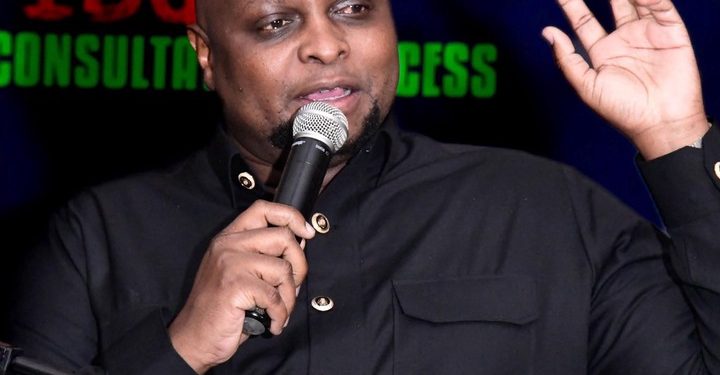Floyd Shivambu, leader of the breakaway Mayibuye Movement, has launched a scathing critique against his former political home, accusing the Economic Freedom Fighters (EFF) of abandoning its foundational principle of protected industrial expansion – a policy he describes as crucial for South Africa’s economic sovereignty.
Speaking at a recent policy consultation, the firebrand politician lamented what he called the EFF’s ideological drift, claiming the party had replaced substantive economic debate with “misinformation and gossip.” His comments reveal deepening fractures within South Africa’s radical economic transformation camp.
“Protected industrial expansion wasn’t just a slogan – it was our blueprint for job creation and economic independence,” Shivambu asserted, referencing the policy designed to shield strategic local industries from foreign competition. “Today, even those who coined the concept can’t explain its implementation.”
The attack signals Mayibuye’s attempt to position itself as the true custodian of uncompromising leftist economics, capitalizing on perceived ideological dilution within the EFF. Political analyst Lebohang Pheko notes: “Shivambu is weaponizing policy nostalgia, appealing to those who believe the revolution has lost its edge.”
The movement’s emphasis on economic protectionism comes as South Africa grapples with deindustrialization and record unemployment. Shivambu argues that without tariff protections and state support, local manufacturing will continue collapsing to foreign imports – a stance that resonates with struggling industrial workers.
However, critics question whether Mayibuye offers more than rhetorical militancy. “Protected industrialization requires detailed sectoral plans, not just sloganeering,” cautioned trade economist Mzwanele Mfunwa. “The devil is in the WTO compliance and implementation details.”
The public rift highlights ongoing tensions within South Africa’s political left about maintaining ideological purity versus pragmatic governance. As Mayibuye courts disaffected EFF members, its ability to convert radical rhetoric into viable policy may determine whether it remains a fringe movement or emerges as a serious challenger in the 2024 elections.
Neither EFF leadership nor former EFF colleagues now in government responded to requests for comment regarding Shivambu’s allegations of ideological abandonment.






















